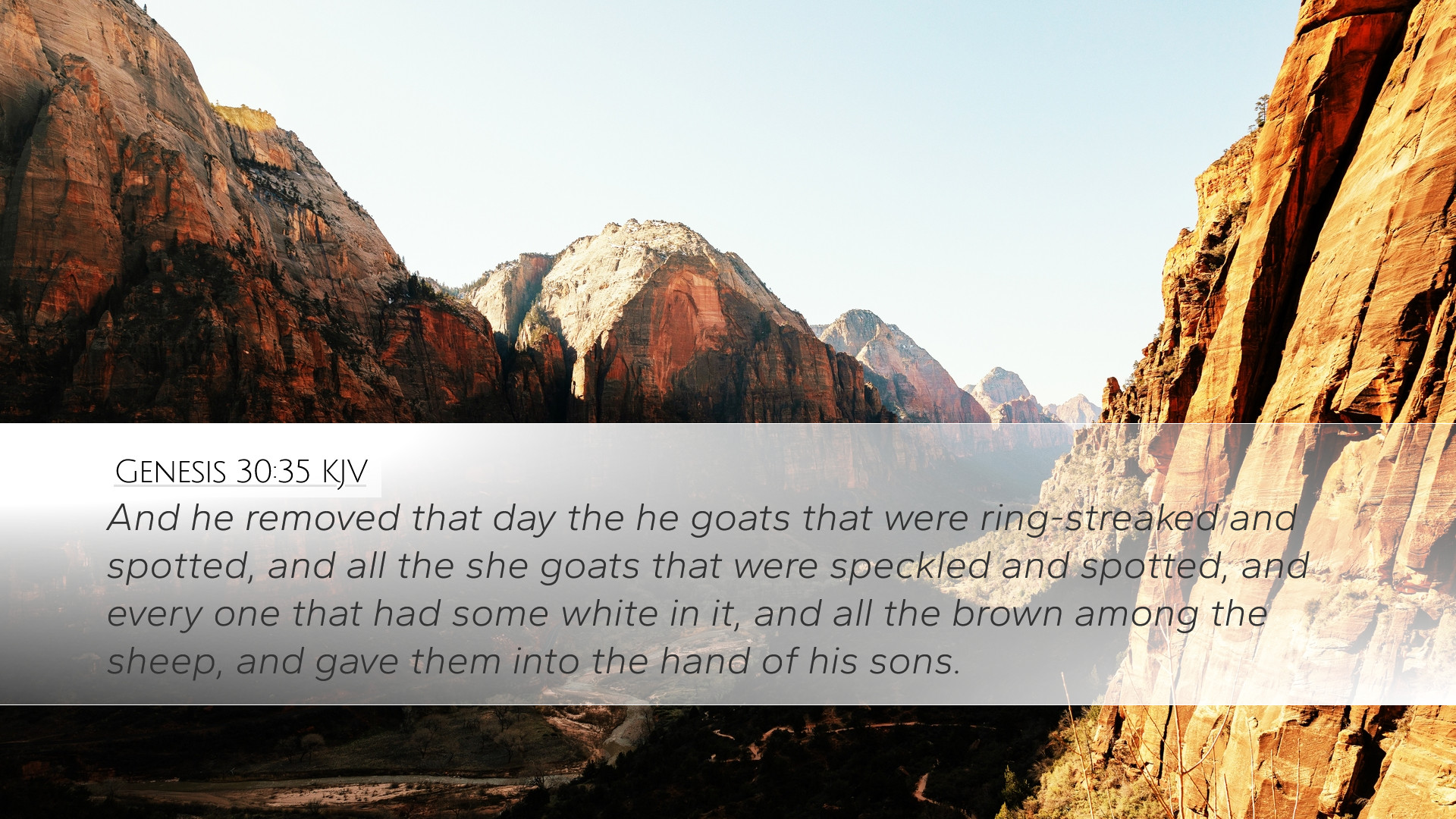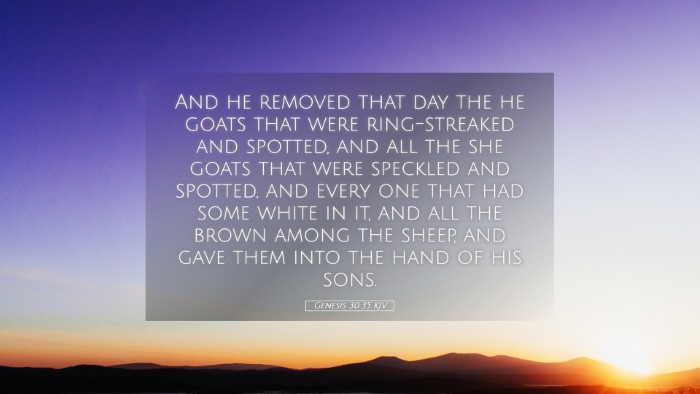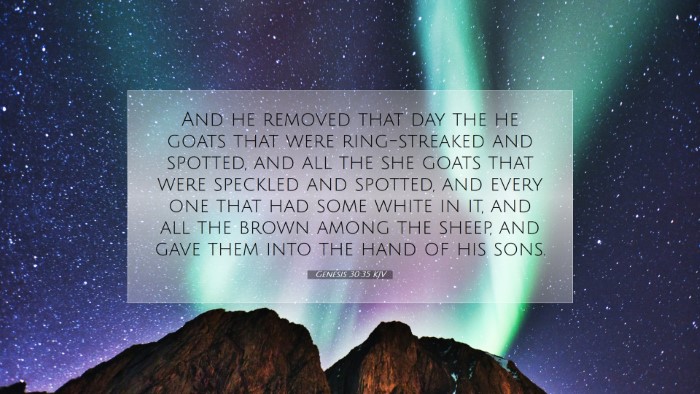Commentary on Genesis 30:35
Genesis 30:35 (KJV): "And he removed that day the he goats that were ringstraked and spotted, and all the she goats that were speckled and spotted, and every one that had some white in it, and all the brown among the sheep, and gave them into the hand of his sons."
Introduction
This verse captures a pivotal moment in the story of Jacob and Laban, laying the foundation for the wealth of Jacob's future and the divinely orchestrated increase of his livestock. By examining this moment through the lens of several public domain commentaries, we can gain deeper insights into the theological, historical, and practical implications of this pivotal action.
Contextual Background
This event occurs during a crucial phase in Jacob's life, as he attempts to establish his independence from Laban, with whom he has spent many years working. The tension between Jacob and Laban serves as a backdrop for God's providential blessings. Herein lies a demonstration of faith in God's promises and Jacob's strategic maneuvering within his circumstances, which can be analyzed from both spiritual and practical perspectives.
Interpretive Insights
1. The Character of Jacob
Matthew Henry suggests that Jacob was wise in his dealings, demonstrating both prudence and cunning in securing his future. By removing the spotted and speckled animals, he sought to manipulate the natural reproduction processes to increase his own wealth. Henry elaborates that this reflects Jacob's complex character, which combines both faith and a degree of human scheming.
2. Laban's Influence
Albert Barnes discusses the significance of Laban's role as a shrewd and tricky employer. Laban's decision to withhold Jacob's rightful wages mirrors the deceptive practices that plagued their relationship. The act of separating the animals can be seen as a countermeasure from Jacob against Laban's potential further exploitation.
3. Theological Implications
Adam Clarke points out the theological narrative prevalent in this text, noting that behind Jacob's actions lay the providential hand of God. How God ensures the prosperity of Jacob despite the deceit and manipulation surrounding him reinforces a key theme throughout Genesis: the faithfulness of God to His covenant people. Clarke offers a perspective that the act of separating the livestock should be viewed as part of God's larger plan, working through human actions to fulfill His promises.
Symbolic Meanings
This verse's imagery of animals variously marked hints at deeper spiritual truths. The spotted and speckled animals can symbolize God's diverse grace afforded to a variety of His people. Moreover, their separation signifies the distinction between divine blessings and those derived from human scheming.
Practical Applications
For pastors and theologians, the passage encourages reflection on leadership and stewardship. It poses questions about the balance between faith and practical wisdom in ministry and personal life. Jacob's example can inspire believers to trust in God's promises while actively engaging with the world around them, reflecting a dynamic partnership between divine sovereignty and human responsibility.
1. Faith in Action
This verse serves as a reminder that faith is demonstrated not merely by passive waiting but by taking bold steps in the direction of God's promises. Jacob’s actions become an encouragement for believers to act in faith while trusting in God’s sovereignty.
2. Ethical Considerations
Jacob's strategy raises important ethical reflections for modern believers. Engaging in shrewdness in matters of personal and professional life must be weighed against the ethical implications of one's actions. As pastors, guiding congregants on how to navigate these dilemmas while maintaining integrity becomes paramount.
3. God’s Provision
Ultimately, this verse illustrates God's providence. Despite the human angles in Jacob's planning, it is God who ensures the results. This reassures believers of God’s active role in their lives, encouraging them to seek His guidance in both personal endeavors and communal leadership.
Conclusion
Genesis 30:35 stands as a poignant reminder of the complexities involved in human relationships and divine providence. Through the character of Jacob, we see the interplay of cunning and faith, illustrating the journey of a man who ultimately trusts in God's promises. The insights drawn from public domain commentaries offer layers of understanding and application for both individual believers and church leaders, challenging them to recognize and partner with God's work in their lives.


